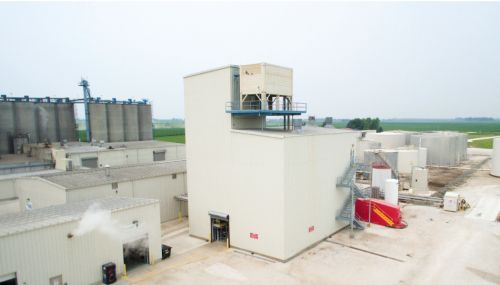All
Focus on Decarbonization
by James Cunningham

Eastern Energy Expo takes on the challenges of lower carbon fuels.
The higher cloud and pour points of renewable liquid fuels, as well as supply and storage concerns, were featured topics at the Eastern Energy Expo held in May in Atlantic City, NJ. According to the speakers at these presentations, these issues are being studied – and solved – as the liquid fuel industry moves toward its goal of wider distribution of B50 and B100 fuels.
NORA Board Meeting: Testing B100 Biodiesel
The National Oilheat Research Alliance (NORA) Board Meeting on Monday, May 22, began with NORA President Michael Devine reviewing year-end financials and plans for future expenditures. The meeting was then turned over to Dr. Thomas Butcher, Director of Research at the NORA Laboratory in Plainview, NY, to discuss their extensive testing of B100 biodiesel.
The NORA Laboratory is actively researching questions such as: how does the fuel quality of B100 hold up, how does B100 affect heating equipment, and how does B100 operate in colder temperatures? While testing is ongoing, Dr. Butcher emphasized the need for additives in B100 to reduce clouding in colder temperatures.
Dr. Butcher then touched on another focus of their research, namely the connection between gas-powered cooking appliances and high-particulate matter indoors. According to Dr. Butcher, NORA research has not found any connection between gas appliances and high-particulate matter or poor air quality.
This research reinforces the fact that NORA is increasingly focusing on renewable liquid fuels and moving away from the “Oilheat” component of its name. Bob O’Brien, NORA Director of Education, recently requested that the International Energy Conservation Code (IECC) stop recognizing the term “Oilheat” and instead replace it with “Liquid Heating Fuels.” The question arose as to whether NORA was considering changing the Alliance’s name, to replace the “O” for Oilheat. Devine suggested that a name change was not under consideration while NORA is up for re-authorization, but it is being discussed as a possibility in the future.
Cold Flow Solutions
The Keynote Session on Tuesday, May 23, also focused on some of the issues related to higher blends of renewable fuels. “Cold Flow Solutions for B50 Bioheat® Fuel,” was conducted by Advanced Fuel Solutions President Paul Nazzaro, with Dr. Kerstin Müller, Global Head of Application Development at the Clariant Refinery Business, and Scott Fenwick, Technical Director of Clean Fuels Alliance America
Dr. Müller gave an in-depth presentation about her findings related to the cloud point and pour point of B50 Bioheat® fuel. The “Cold Storage Test of Treated B50” specifically assesses these items. While the scientific information may have been dense for non-chemists, the conclusion was simple: Biodiesel fuels containing higher volumes of saturated fats have a higher cloud point, and a higher cloud point can lead to sediment buildup in heating systems and cause blockages. Dr. Müller presented some of the solutions her company has been developing to depress pour points in low sulfur fuel oils.
Higher pour point is one of the obstacles to widespread acceptance of higher blends of biofuels that are being tackled by NORA, Clean Fuels, Advanced Fuels Solutions and others, including Clariant. What they are working to create is a cold flow additive that treats the biodiesel directly, and not the ultra-low sulfur heating oil with which it is blended to create Bioheat® fuel.
What they have discovered is that Cold Flow Improvers (CFIs) can have a profound impact on the cloud point of biodiesel fuel. And while CFIs have worked to lower the cloud point for use in colder temperatures, the panel discussed the need for additives in biodiesel fuels regardless of climate to help ensure fuel quality.
The Industry’s Response to Carbon Reduction
Don Farrell of Indoor Comfort Marketing led a panel of six industry leaders, including Jason Lawrence of Chevron Renewable Energy Group, Michael Devine and Dr. Thomas Butcher of NORA, Jim Jones of Carlin Combustion Technology, Kevin Beckett of R.W. Beckett Corp., and Jacqueline Hart of Hart Home Comfort, in the final Featured Session on Wednesday morning.
The session started at the first step of the biodiesel supply chain with producer Jason Lawrence, and continued down the line to the scientific studies and policies at NORA, followed by comments from equipment manufacturers Kevin Beckett and Jim Jones, and reaching the end of the supply chain with fuel distributor Jacqueline Hart.
No stone was left unturned during the nearly two-hour panel discussion, beginning with Lawrence and Chevron Renewable Energy Group’s commitment to biodiesel fuels. He repeatedly emphasized the availability of biodiesel, stating that his company utilizes multiple feedstocks and has the production capacity and distribution to supply all the different regions and climates of the U.S., but rather what was needed was a commitment from the distributors to switch to biodiesel fuels. The hesitancy from fuel suppliers, consumers and politicians not fully buying-in on biodiesel is causing the delay in the wider application of the fuel.
Dr. Butcher revealed that NORA is looking at other cellulosic biodiesel fuels not derived from cooking oils and animal fats. Devine reinforced that, boldly stating, “Our focus is on decarbonization.”
The free-flowing conversational style of the session allowed for more interactions between the audience and panelists, especially as panelists would touch on some of the work audience members were involved in as they answered Farrell’s questions.
Still, there was a serious tone in the room, despite the more casual format, with Kevin Beckett calling on everyone in the room to act, saying, “It’s up to us to tell our own story.”
The research and dedication to the liquid fuels industry were on full display at EEE. It comes at a time when lawmakers are actively trying to dismiss the industry and the incredible work that it has done to reduce carbon in our fuels and create a renewable energy source. Perhaps no quote rang as true as when Michael Devine said, “This is something our industry can do... right now.”
Related Posts
 Why Quality Matters in Your Biofuel Blends
Why Quality Matters in Your Biofuel Blends
Posted on June 25, 2025
 Incorporating Higher Blends of Biofuels
Incorporating Higher Blends of Biofuels
Posted on May 14, 2025
 NORA Programs at Eastern Energy Expo
NORA Programs at Eastern Energy Expo
Posted on May 13, 2025
 March Short-Term Energy Outlook
March Short-Term Energy Outlook
Posted on April 28, 2025
Enter your email to receive important news and article updates.
